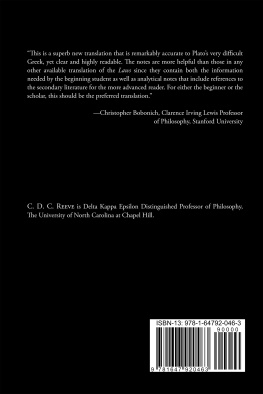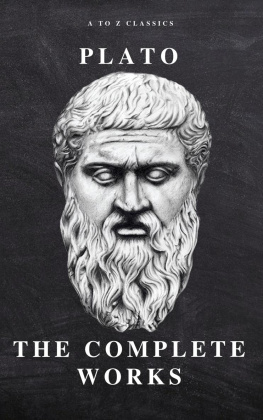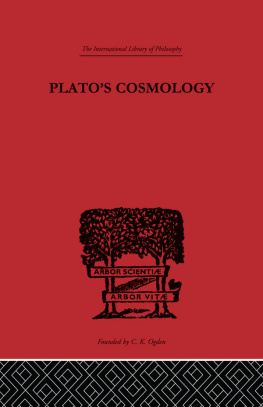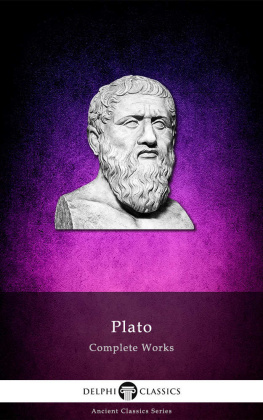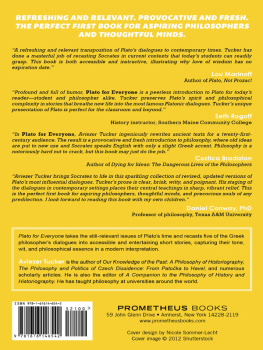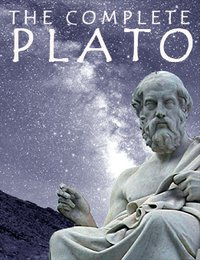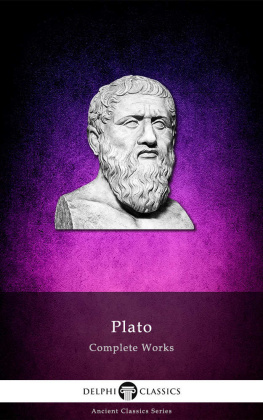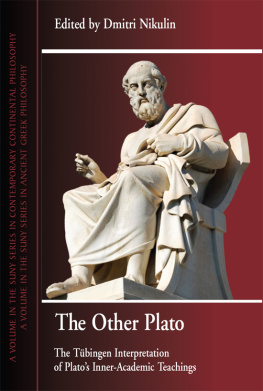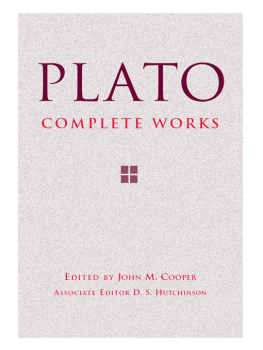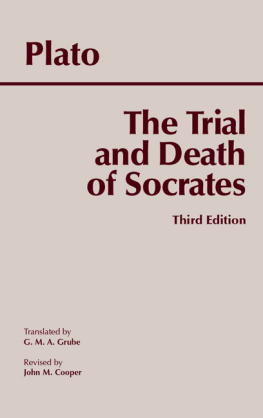The Apology
How you, O Athenians, have been affected by my accusers, Icannot tell; but I know that they almost made me forget who Iwasso persuasively did they speak; and yet they have hardlyuttered a word of truth. But of the many falsehoods told by them,there was one which quite amazed me;I mean when they said that youshould be upon your guard and not allow yourselves to be deceivedby the force of my eloquence. To say this, when they were certainto be detected as soon as I opened my lips and proved myself to beanything but a great speaker, did indeed appear to me mostshamelessunless by the force of eloquence they mean the force oftruth; for is such is their meaning, I admit that I am eloquent.But in how different a way from theirs! Well, as I was saying, theyhave scarcely spoken the truth at all; but from me you shall hearthe whole truth: not, however, delivered after their manner in aset oration duly ornamented with words and phrases. No, by heaven!but I shall use the words and arguments which occur to me at themoment; for I am confident in the justice of my cause (Or, I amcertain that I am right in taking this course.): at my time of lifeI ought not to be appearing before you, O men of Athens, in thecharacter of a juvenile oratorlet no one expect it of me. And Imust beg of you to grant me a favour:If I defend myself in myaccustomed manner, and you hear me using the words which I havebeen in the habit of using in the agora, at the tables of themoney-changers, or anywhere else, I would ask you not to besurprised, and not to interrupt me on this account. For I am morethan seventy years of age, and appearing now for the first time ina court of law, I am quite a stranger to the language of the place;and therefore I would have you regard me as if I were really astranger, whom you would excuse if he spoke in his native tongue,and after the fashion of his country:Am I making an unfair requestof you? Never mind the manner, which may or may not be good; butthink only of the truth of my words, and give heed to that: let thespeaker speak truly and the judge decide justly.
And first, I have to reply to the older charges and to my firstaccusers, and then I will go on to the later ones. For of old Ihave had many accusers, who have accused me falsely to you duringmany years; and I am more afraid of them than of Anytus and hisassociates, who are dangerous, too, in their own way. But far moredangerous are the others, who began when you were children, andtook possession of your minds with their falsehoods, telling of oneSocrates, a wise man, who speculated about the heaven above, andsearched into the earth beneath, and made the worse appear thebetter cause. The disseminators of this tale are the accusers whomI dread; for their hearers are apt to fancy that such enquirers donot believe in the existence of the gods. And they are many, andtheir charges against me are of ancient date, and they were made bythem in the days when you were more impressible than you are nowinchildhood, or it may have been in youthand the cause when heardwent by default, for there was none to answer. And hardest of all,I do not know and cannot tell the names of my accusers; unless inthe chance case of a Comic poet. All who from envy and malice havepersuaded yousome of them having first convinced themselvesallthis class of men are most difficult to deal with; for I cannothave them up here, and cross-examine them, and therefore I mustsimply fight with shadows in my own defence, and argue when thereis no one who answers. I will ask you then to assume with me, as Iwas saying, that my opponents are of two kinds; one recent, theother ancient: and I hope that you will see the propriety of myanswering the latter first, for these accusations you heard longbefore the others, and much oftener.
Well, then, I must make my defence, and endeavour to clear awayin a short time, a slander which has lasted a long time. May Isucceed, if to succeed be for my good and yours, or likely to availme in my cause! The task is not an easy one; I quite understand thenature of it. And so leaving the event with God, in obedience tothe law I will now make my defence.
I will begin at the beginning, and ask what is the accusationwhich has given rise to the slander of me, and in fact hasencouraged Meletus to proof this charge against me. Well, what dothe slanderers say? They shall be my prosecutors, and I will sum uptheir words in an affidavit: Socrates is an evil-doer, and acurious person, who searches into things under the earth and inheaven, and he makes the worse appear the better cause; and heteaches the aforesaid doctrines to others. Such is the nature ofthe accusation: it is just what you have yourselves seen in thecomedy of Aristophanes (Aristoph., Clouds.), who has introduced aman whom he calls Socrates, going about and saying that he walks inair, and talking a deal of nonsense concerning matters of which Ido not pretend to know either much or littlenot that I mean tospeak disparagingly of any one who is a student of naturalphilosophy. I should be very sorry if Meletus could bring so gravea charge against me. But the simple truth is, O Athenians, that Ihave nothing to do with physical speculations. Very many of thosehere present are witnesses to the truth of this, and to them Iappeal. Speak then, you who have heard me, and tell your neighbourswhether any of you have ever known me hold forth in few words or inmany upon such matters You hear their answer. And from what theysay of this part of the charge you will be able to judge of thetruth of the rest.
As little foundation is there for the report that I am ateacher, and take money; this accusation has no more truth in itthan the other. Although, if a man were really able to instructmankind, to receive money for giving instruction would, in myopinion, be an honour to him. There is Gorgias of Leontium, andProdicus of Ceos, and Hippias of Elis, who go the round of thecities, and are able to persuade the young men to leave their owncitizens by whom they might be taught for nothing, and come to themwhom they not only pay, but are thankful if they may be allowed topay them. There is at this time a Parian philosopher residing inAthens, of whom I have heard; and I came to hear of him in thisway:I came across a man who has spent a world of money on theSophists, Callias, the son of Hipponicus, and knowing that he hadsons, I asked him: Callias, I said, if your two sons were foalsor calves, there would be no difficulty in finding some one to putover them; we should hire a trainer of horses, or a farmerprobably, who would improve and perfect them in their own propervirtue and excellence; but as they are human beings, whom are youthinking of placing over them? Is there any one who understandshuman and political virtue? You must have thought about the matter,for you have sons; is there any one? There is, he said. Who ishe? said I; and of what country? and what does he charge?Evenus the Parian, he replied; he is the man, and his charge isfive minae. Happy is Evenus, I said to myself, if he really hasthis wisdom, and teaches at such a moderate charge. Had I the same,I should have been very proud and conceited; but the truth is thatI have no knowledge of the kind.


